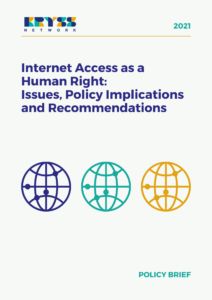
“[A]ccess to internet facilities must be considered a human right apart from basic necessities such as clothing, food and shelter. In today’s world, life is not perfect without the convenience of the internet. Our ministry is the main pulse to the formation of a government, it is an information channel to connect the p eople with the people, the government with the people and so on. Expanding this service (internet) to be owned and enjoyed by every citizen is also a big challenge, while broadcasting, information is also important and challenging . . .”
– Tan Sri Annuar Musa, Minister of Communications and Multimedia. 30 August 2021, Sourced and excerpted from The Borneo Post
Recognised all over the world as a crucial enabler of human rights, the internet has become a gateway to healthcare, information, education, social welfare protection, work opportunities, and social, cultural and political participation. The COVID – 19 pandemic in particular has demonstrated how essential and dependent everyone is on meaningful access to the internet.
A human rights approach to internet access must be rooted in the principles of universality, equality, non-discrimination, empowerment, accountability, and transparency. This means that “access” must be meaningful and serve to enrich the lived realities of peoples in Malaysia, which in turn must include addressing the barriers they face in exercising their human rights online and in digital spaces.
Thus, the lack of access to the internet must be understood to include issues of affordability, digital literacy, equal access to opportunities to enhance digital knowledge, literacy, and skills, the availability of reliable and trusted localised content (language, context) and the guaranteed protection in upholding the right to access information and produce content.
In our policy brief, we unpack the issues, challenges, and recommendations in promoting, ensuring, and protecting internet access as a human right.
Read our policy brief to know more!

